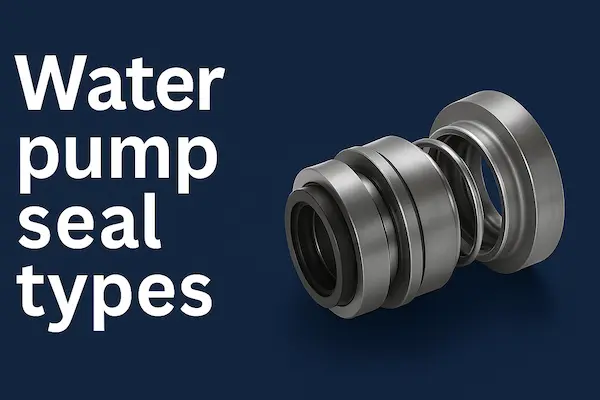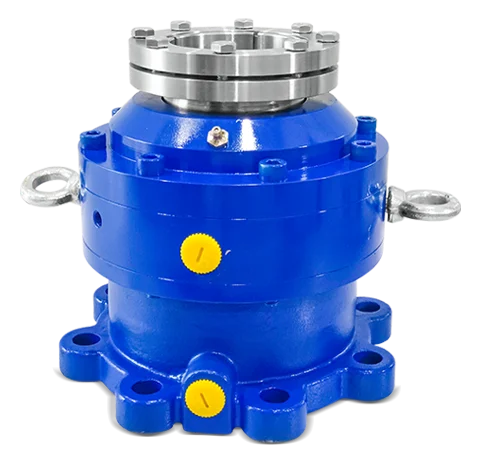Posted At: Aug 18, 2025 - 957 Views

Water Pump Seal Types: A Complete Guide
When it comes to ensuring the reliable performance of pumps, seals play a critical role. A water pump seal prevents leakage, protects the pump’s internal components, and ensures smooth, long-term operation. Choosing the right water pump seal type is essential to match the application, fluid type, and operating conditions.
In this blog, we’ll explore the most common water pump seal types, their applications, and why selecting the right seal matters for your pump system. If you want know more details visit here.
Why Are Water Pump Seals Important?
Every pump handling water or other fluids faces the challenge of leakage. Seals are designed to:
Prevent fluid leakage around the pump shaft
Withstand high pressure and temperature variations
Protect bearings and other pump components from contamination
Reduce downtime and extend equipment life
A poorly chosen seal can lead to seal failure, costly downtime, and even pump damage. That’s why it’s crucial to understand the different water pump seal types available.
Common Water Pump Seal Types
1. Mechanical Seals
Mechanical seals are one of the most widely used seal types in water pumps. They consist of two flat sealing surfaces—one rotating with the shaft and the other stationary.
Advantages:
Reliable sealing for high-pressure and high-speed applications
Longer service life compared to traditional packing
Reduced maintenance requirements
Applications:
Used in industrial pumps, chemical pumps, and municipal water systems where leakage must be minimized.
2. Gland Packing (Stuffing Box Seals)
Also known as compression packing, gland packing uses braided material (like graphite or PTFE) wrapped around the pump shaft.
Advantages:
Simple and inexpensive
Easy to install and replace
Applications:
Common in low-cost pumping systems or where some leakage is acceptable. However, it requires frequent maintenance and can cause shaft wear.
3. Lip Seals
Lip seals (also called shaft seals) are made of elastomer materials and feature a flexible lip that seals against the shaft.
Advantages:
Compact and cost-effective
Good for moderate pressure applications
Easy to replace
Applications:
Used in small pumps, automotive water pumps, and light-duty applications.
4. Cartridge Seals
Cartridge seals are pre-assembled mechanical seals that come as a complete unit.
Advantages:
Easy to install, reducing the chance of installation errors
Lower downtime and maintenance costs
Suitable for demanding environments
Applications:
Ideal for industrial water pumps, chemical pumps, and high-performance systems.
5. Balanced and Unbalanced Seals
These are design variations of mechanical seals.
Balanced seals handle high pressure and temperature efficiently.
Unbalanced seals are more economical and work well in low-pressure conditions.
6. O-Ring Seals
O-rings are secondary sealing elements often used in combination with mechanical seals.
Advantages:
Provide a tight, reliable seal
Can handle various fluids and pressures depending on material type
Applications:
Common in pumps where simple, static sealing is needed.
Choosing the Right Water Pump Seal Type
When selecting a seal, consider these factors:
Fluid type: Clean water, slurry, or chemicals
Operating pressure & temperature
Pump speed and shaft size
Maintenance frequency
The correct water pump seal type ensures longer service life, better performance, and reduced operating costs.
Conclusion
Water pumps are vital in industries ranging from water treatment and agriculture to oil & gas and chemicals. The right water pump seal type ensures efficiency, safety, and durability. Whether it’s a mechanical seal, lip seal, cartridge seal, or gland packing, each has unique advantages for different applications.
At QM Seals, we specialize in designing and manufacturing high-performance mechanical seals tailored for water pumps and other industrial applications. With our expertise, you can find the best sealing solution for your needs.


